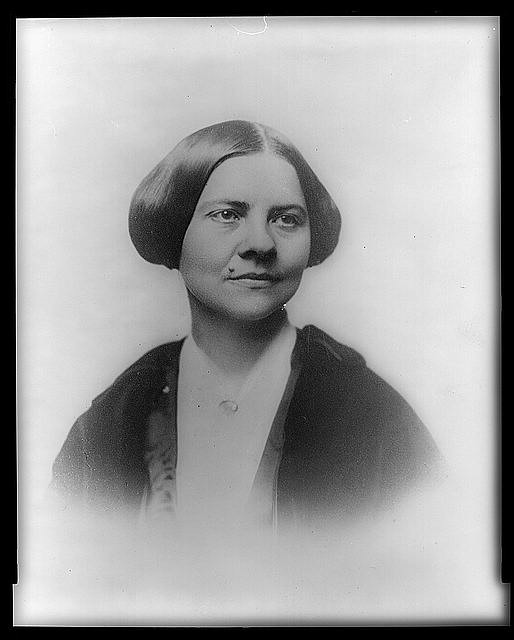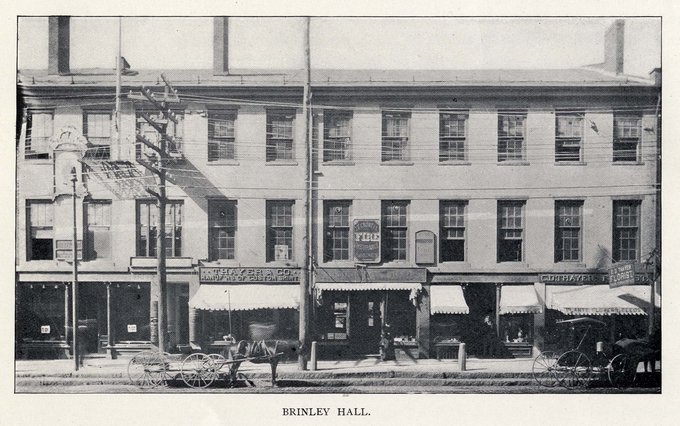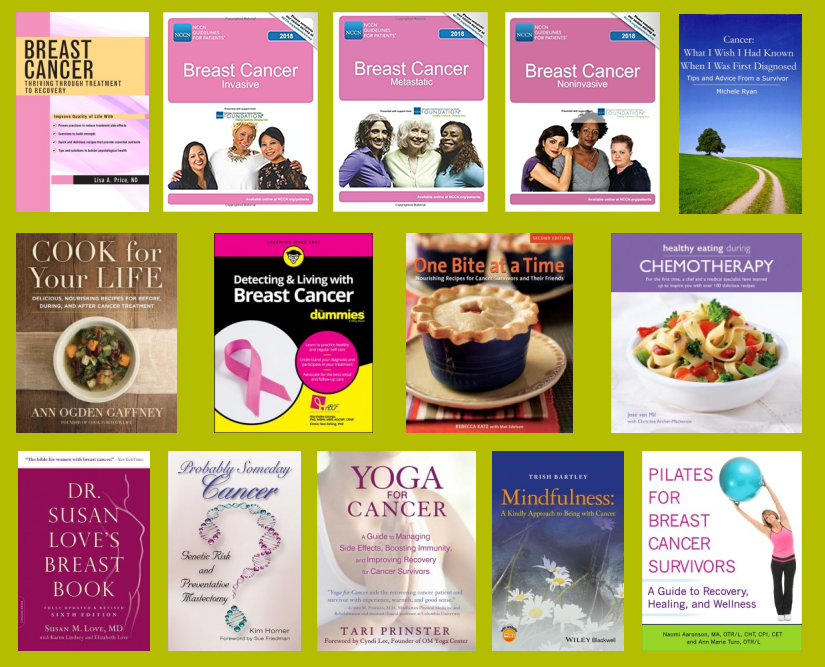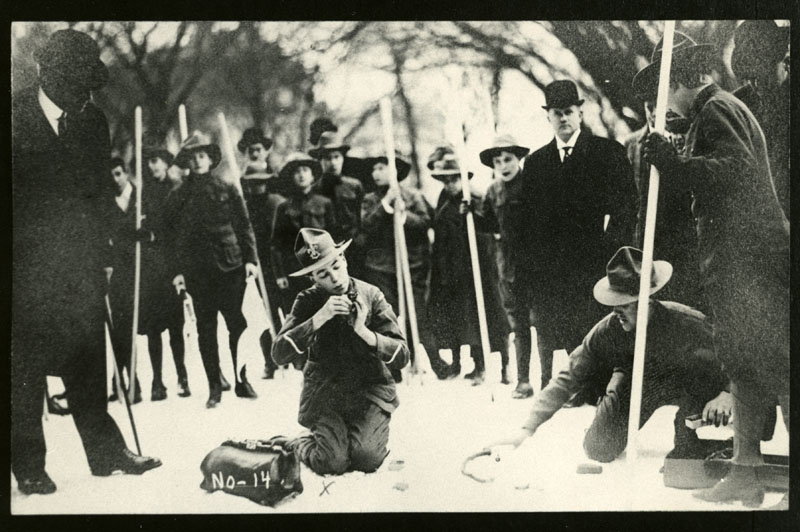Daylight Saving Time Ends this Sunday, November 3. Don’t forget to turn your clocks back.
News
Groovin’ on the Pike with DeSanguashington: November 1
Groovin’ on the Pike: After Hours at the Library with DeSanguashington is on Friday, November 1 from 7 – 9 p.m.
2020 LEGO Exhibit: Submissions Closed
Exibit Dates: January 2 through 31, 2020
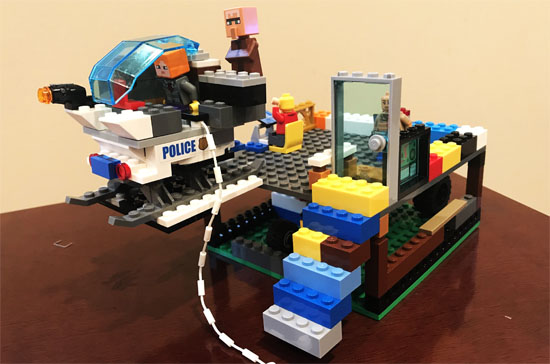
Example created by Jackson Shapiro for 2018 LEGO exhibit.
We want to see your LEGO creativity!
This exhibit is open to LEGO builders age 18 and under, as well as teams that include at least one member under 18.
Submission Deadline: Monday, Dec. 16, 2019.
Rules:
- Your creation must be ORIGINAL WORK. (Instructions found in a book or online may be followed, but no entries built from commercial kits will be accepted.)
- Your entry must fit on a 10" x 10" base.
- You must be able to deliver your creation to the assigned Library location for the exhibit.
Submissions Now Closed
Ghost Stories, Thrillers and True Crime, Oh My!
There’s no better way to get in the Halloween spirit than with a spooky read. From ghost stories to thrillers to true crime, pick one of these up when you want to hide under the covers with a good book.
Celebrate Halloween at the Library
Want to create something booo-tiful, listen to spooky poetry performed, or watch a silly movie?
We’ve got fun Halloween events all month for kids, teens and adults!
This Week in 19th Amendment History: National Woman’s Rights Convention
October 23, 1850
Celebrate the 100th anniversary of the 19th Amendment with stories about the people and events that led to the passage of women’s suffrage in the United States.
On October 23, 1850, the first National Woman’s Rights Convention began in Worcester, Massachusetts. Amidst the ringing fervor of the mid-19th-century clarion call for expanding women’s rights – with the right to vote as its central tenet – this day would emerge as a significant step in solidifying the goals and action plan of the women’s suffrage movement in the United States.
Held over two days in Worcester, Massachusetts, the 1850 Woman’s Rights Convention was planned by members of the Anti-Slavery Society, among them Lucy Stone, Abby Kelley Foster, Paulina Wright Davis and Harriot Kezia Hunt.
Davis – a New York suffrage advocate who helped petition for the passage of the Married Women’s Property Act of 1848 – would later be elected president of the convention during the event’s proceedings.
More than 1,000 delegates from 11 states gathered in Worcester’s Brinley Hall for numerous speeches on topics ranging from the right to vote, owning property, and women’s admittance to the fields of higher education, medicine, and the ministry.
Brinley Hall, Worcester, MA, where the National Woman’s Convention was held in 1850 and 1851. Photo from the Massachusetts State Library.
Among the convention’s attendees were Frederick Douglass, William Lloyd Garrison, and Sojourner Truth. Truth and many other prominent suffragists, including Ernestine Rose, Antoinette Brown and Lucretia Mott, delivered speeches over the course of the convention.
The press was largely derisive in its reporting on the convention. The New York Herald, for instance, attacked the speakers’ appearances and portrayed the attendees' demands as ridiculous, framing the convention in their headlines as an “Awful combination of socialism, abolitionism and infidelity. The Pantalettes striking for the Pantaloons. Bible and Constitution Repudiated.”
In a satirical take, the newspaper reported that the Woman’s Rights Convention organizers aimed to:
- abolish the Bible
- abolish the constitution and the laws of the land
- reorganize society upon a social platform of perfect equality in all things, of sexes and colors
- establish the most free and miscellaneous amalgamation of sexes and colors
- elect Abby Kelley Foster President of the United States and Lucretia Mott Commander-in-chief-of the Army
- cut throats ad libitum
- abolish the gallows
In some ways, this condescending portrayal helped expand the notoriety and message of the convention. The convention’s proceedings were recorded and sold after the event as pamphlets, gaining international readers and recognition.
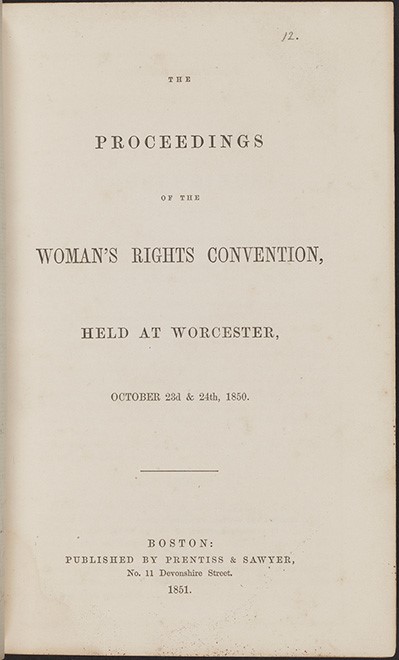
The Proceedings of the Woman’s Rights Convention, held at Worcester, October 23d & 24th, 1850. Boston: Prentiss & Sawyer, 1851. Source: NAWSA Collection, Rare Book and Special Collections Division, Library of Congress (014.00.00)
The British writer and women’s rights advocate Harriet Taylor Mill was significantly inspired by the events of the convention, referencing the organizer’s work in her 1851 piece “The Enfranchisement of Women.”
The 1850 convention would be the first of many national events that would occur annually from this point forward for about a decade, setting a precedent for national suffrage organizing.
The twelfth and final Woman’s Rights Convention would be held in 1869 in Washington, D.C. This would be the last meeting of an organized suffrage front: later in 1869, the movement would split into two groups, divided by the issue of suffrage for other disenfranchised populations.
Under the leadership of Elizabeth Cady Stanton and Susan B. Anthony, the National Woman Suffrage Association directly opposed the 14th and 15th Amendments that would have allowed for African-American men to vote. Lucy Stone and others would go on to form the American Woman Suffrage Association, which supported the 15th Amendment. The suffrage movement would not see widespread unification again until 1890 with the establishment of the National American Woman Suffrage Association, bringing together Stanton, Anthony, Stone, Howe and other suffrage leaders, including Alice Paul and Mary Church Terrell. The group would hold its first convention in 1890 in Washington, D.C.
The 1850 National Woman’s Suffrage Convention represents a historic moment in the suffrage cause, on both scale and in terms of what resulted from the meeting. Although large suffrage conventions had been held in the past – most notably, the 1848 Seneca Falls Convention in New York -- this was the first time a convention of its sort was held on a national level.
This event set an organizing precedent within the suffrage movement for decades to come.
Learn more in “Women’s Suffrage in America: An Eyewitness History” by Elizabeth Frost-Knappman and Kathryn Cullen-DuPont, available at the Library.
2020 marked the centennial of women’s suffrage in the United States.
Library Receives Grant for Breast Cancer Materials from VBCF
Breast Cancer is a Cruel Disease
Information gained from trustworthy, vetted resources can assist those with cancer to discover treatments, conquer fears, and gain strength.
Start your Breast Cancer research with these books to help patients, caregivers and survivors navigate the complicated world of breast cancer diagnosis, treatment and survivorship:
These materials have been provided by a grant from the Virginia Breast Cancer Foundation. Since 2000, the VCBF has financially supported local libraries and library systems across the Commonwealth. providing more than $60,000 in funding, helping libraries to purchase breast health books, e-books, periodicals, DVDs and other materials to to support women and their families in their community.
Community Archives Public Tour: October 16 & 23
Oral History: Presidential Sightings
Interview with Captain Carl Porter

Oral histories are used to understand historical events, actors, and movements from the point of view of real people’s personal experiences.
Carl Washburn Porter, a retired Navy captain and veteran of both world wars, lived in Arlington for most of his life.
Porter’s father worked in construction in the area during the early 20th century and Carl worked alongside his father during the summers, often using a horse-drawn wagon to bring construction supplies to job sites throughout the county.
Carl Porter as Boy Scout, c. 1909. Porter was a member of Troop #1, one of the first Boy Scout troops organized in the United States.
On more than one occasion during his childhood, Porter saw some famous faces in his travels around the area. Porter and his father even met President Wilson when their car broke down on Lee Highway! Porter shares that story, and other tales of Presidential sightings, in the following audio clip:
Narrator: Captain Carl Porter
Interviewer: Arthur W. True
Date: March 5, 1975
CP: While I am speaking of this, I also remember another time that my dad was going up Lee Highway (above Cherrydale) and we had a flat tire; and this was not uncommon in those days. And Dad had pulled over to the far side of the road and just started to work on the car, when another car pulled up behind. Someone got out and walked over, and it was – again, it was President Wilson, who was probably on his way up to the Golf Club – and stopped and asked if they could be of any help in fixing the tire. It shows how times have changed.
While I am mentioning this, I also recall that Theodore Roosevelt (a number of years before that), when he was President, he used to walk around the area between the White House and the Ellipse and Lafayette Park; and I remember seeing him standing out on the street in from of the old Boy’s YMCA on G Street, between 17th and 18th Street, with derby hat, frock coat, and pince-nez glasses. I remember his sons, approximately the same age as my brother and me – they attended Friends School in Washington – but they were, of course, just the same as any other boys: they liked to play baseball and whatnot; and when they went into the White House, they wouldn’t hesitate to barge in the front door and yell, “Ma, where is my baseball glove?” or something like that – any more than youngsters do that we are familiar with, or as we did ourselves.
Porter died in 1989, at age 92. You can find his oral history interview in its entirety in the Center for Local History - VA 975.5295 A7243oh ser.2 no.23.
Photo: Carl Porter, Boy Scout Troop #1, c. 1909.
The goal of the Arlington Voices project is to showcase the Center for Local History’s oral history collection in a publicly accessible and shareable way.
The Arlington Public Library began collecting oral histories of long-time residents in the 1970s, and since then the scope of the collection has expanded to capture the diverse voices of Arlington’s community. In 2016, staff members and volunteers recorded many additional hours of interviews, building the collection to 575 catalogued oral histories.
To browse our list of narrators indexed by interview subject, check out our community archive. To read a full transcript of an interview, visit the Center for Local History located at Central Library.
Stephanie Land: October 23
Stephanie Land’s bestselling debut memoir “Maid: Hard Work, Low Pay, and a Mother’s Will to Survive” recounts her harrowing saga as a single mom navigating the poverty trap. Her unflinching and inspiring testimony exposes the physical, economic, and social brutality that domestic workers face, all while radiating a parent’s hope and resilience.
Wednesday, Oct. 23, 7:00 – 8:30 p.m.
